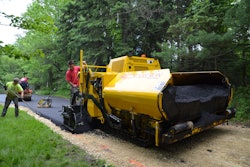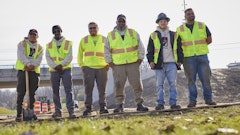The State of Swyft Industry Report uses proprietary data from Swyft Filings, an incorporation and document filing service, as well as public information to provide an overview of business trends by looking at the number of newly-created businesses by industry type.
Travis Crabtree, Swyft president, says there are three primary reasons for the boom in start-up construction companies.
“First and most important is the home market is rebounding,” Crabtree says. “Depending on the region of the country there are a lot of efforts in high-end real estate and there are a lot of efforts on the lower affordable end.”
He says this the growth in the residential construction market impacts construction across a wide spectrum of services such as electrical and plumbing, fueling the growth of new construction-related companies.
“Another contributing factor is the spate of recent natural disasters that have occurred,” Crabtree says. “There have been a number of natural disasters in fairly widespread areas and those areas have to be rebuilt. That’s certainly contributed to startups in those areas.”
Crabtree says a third contributing factor is the state of the country’s infrastructure, which is widely recognized to be in need of immediate repair. “Though the President and Congress have yet to act, infrastructure is on the radar,” Crabtree says. “I don’t think people are starting construction businesses in anticipation of work coming down the pike, but there are more businesses starting up because of shovel ready work on the ground. Companies are opening because they have work to do today.”
With construction being the fastest-growing industry in the country, it’s important that new construction businesses get off on the right foot. Crabtree offers six essential tips for anyone considering starting a construction business.
1. Start a business with a business plan.
“This seems very basic but it’s essential and not every startup has one,” Crabtree says. “Look at your costs and determine how much capital you’re going to need because construction is not like selling cupcakes where you get paid when you sell a cupcake. You have to plan for and build up a little bit of money because even if you’re lucky enough to get a job right away it’s going to be 30 days or more from completing that job before you get any money.”
2. Form your entity.“Take care of all the paperwork you need to – primarily for asset protection,” Crabtree says. “If you don’t and something bad happens on a jobsite you are going to be personally liable for it.”
He says this includes finding a payroll provider (assuming you’re going to hire employees), opening a bank account specifically for the business and obtaining a credit card in the name of the business.
“This makes bookkeeping for smaller companies much easier because everything can be tracked in one place,” he says.
3. Obtain necessary permits.
This varies depending on the state, county and even city and can include federal permits depending on the work you’ll be doing. Crabtree says finding out what permits you need should be part of the business plan.
“But you should wait until the company entity is formed before getting the permits so you can get the permits in the name of the entity,” Crabtree says.
He says it might be best for startups new to the industry to hire a service that can do the research to find out which permits you need for the work you plan on doing.
4. Protect Yourself with insurance.
Accidents happen on jobsites so you want to be protected. “Brush up on what the term ‘indemnity’ means, especially for the little guys,” Crabtree says. “Small contractors working on a big guy’s job can find themselves liable for anything that happens there.”
5. Learn your labor issues.
“First, learn I-9 compliance,” Crabtree says. “Then establish a process before you start hiring to make sure you are hiring people eligible to be employed in the U.S. This is not complicated but it does require you to dot your Is and cross your ts.
Second, make sure to meet the new hire in person. “You don’t want to be hiring over the phone or through an email,” he says.
Third, make sure your employees are properly classified. “I don’t care how many times you use the term ‘independent contractor’ in your hiring agreement, if you exercise enough control over a person that person is going to be considered an employee and you’ll have to pay the appropriate penalties when you’re caught.”
6. Don't skimp on marketing.
Make sure to include marketing in your business plan – and make sure to fund it. “Most people think of Google as the place to turn when they want to find a plumber for their home or buy a cupcake, but the B-to-B world is all going online as well,” he says. “That’s where your marketing focus should be.”












![Lee Boy Facility 2025 17 Use[16]](https://img.forconstructionpros.com/mindful/acbm/workspaces/default/uploads/2025/09/leeboy-facility-2025-17-use16.AbONDzEzbV.jpg?ar=16%3A9&auto=format%2Ccompress&fit=crop&h=135&q=70&w=240)








